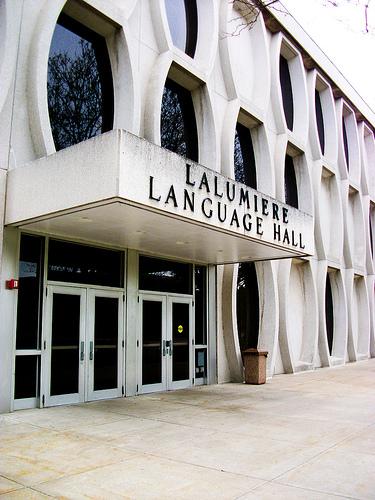
Following the first announcement of curriculum changes within the College of Arts & Sciences, other colleges in the university alerted students to impending changes. And while the change can be seen as constructive and non-threatening, this requirement overhaul could be a cause for some stress among students.
The colleges are trying to be as clear as possible with what the future holds, disclosing what they can and nothing more. Most are likely waiting to make the big dispersal of information when activity on campus slows down.
Midterms and the remainder of spring semester are currently the focus of students and instructors, yet with fall registration starting soon after break, there is the potential for an outbreak of confusion and panic amongst students trying to plan ahead.
This panic over the future can usually be calmed by going off of the university bulletin or having a productive meeting with a faculty advisor. Both of these resources are usually helpful when planning what courses to take, but as the proposed changes to each college’s curriculum are not publicly outlined yet, the latter might be the best route this semester.
Advisors must play a very important role for students as the alterations continue to be solidified. While some colleges have professional advisors well-equipped to answer students’ questions, some academic advisors have been found lacking in preparation, creating uneasiness.
Inaccurate advice can set a student’s academic career back, but it can easily be prevented if all parties are aware of the requirements and how these relate differently to each student. Requirement changes to the number of credits and types of courses needed intend to make graduating in four years more attainable for all students and ensuring this positive effect means making sure people can perform their jobs properly.
To meet the upcoming changes, advising needs to be at its best across the university so students do not feel neglected or ignored as things start shifting around them. Students need to stay as informed and in control as possible with regard to their coursework and each college and their advisors can assist by providing quality advice and information universally.
Colleges can start by giving faculty advisors a crash course in possible changes and explaining how this could affect students differently. Advisors will need to be familiar with the new requirements while also catering to each individual advisee. Each advisee seeking help should be treated as an individual with particular experiences in and out of the classroom and advisors must be accommodating.
Students can also be part of the new changes by staying up to date with their colleges and attending possible forums with college deans. As the changes directly affect them, students should be active about getting the correct information and using it to enhance their experience rather than getting caught up in confusion.
The changes to the curriculum can lead faculty advisors to either become obstacles or valuable resources for students. This semester, they must strive to be the latter. Advisors must adapt to change quickly and efficiently and make sure they are working in the interest of each individual advisee.
Change does not have to be so scary, as long as each college is informed and prepared for what may lie ahead.











